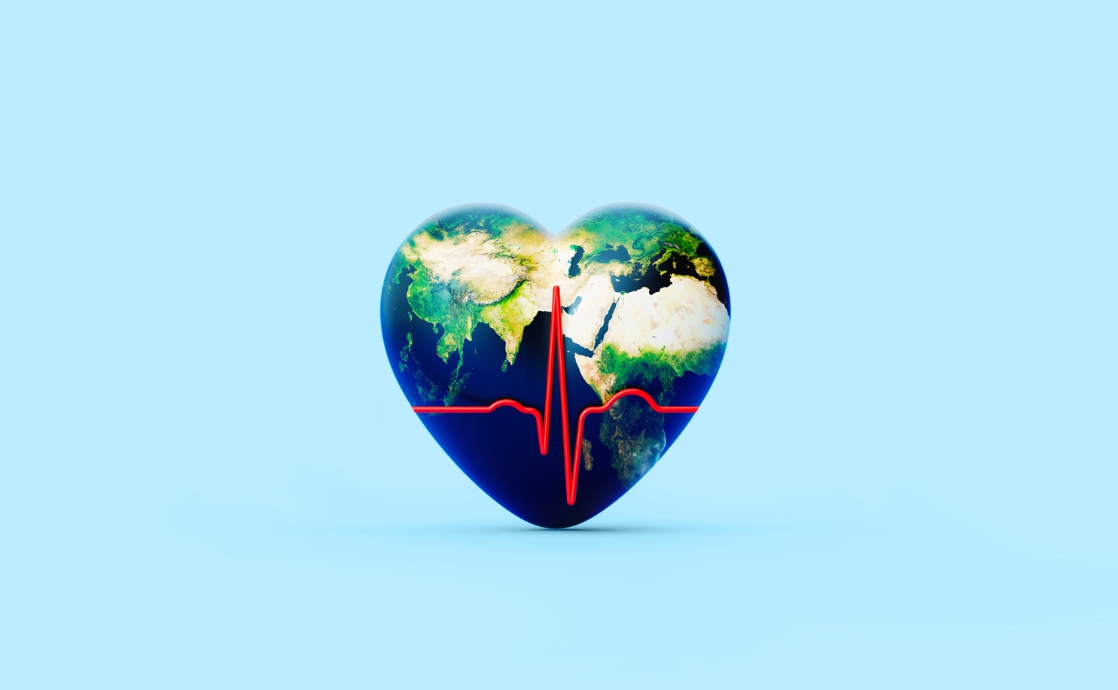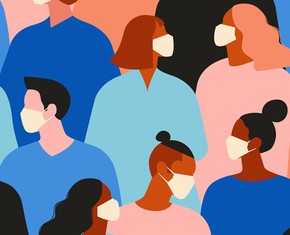The views expressed in our content reflect individual perspectives and do not represent the authoritative views of the Baha'i Faith.
Many Baha’is work in the healthcare field, and today Baha’i physicians, nurses, researchers, teachers, and health workers – and indeed all the world’s Baha’is – will observe U.N. World Health Day.
This profound passage from the writings of Abdu’l-Baha defines what it means to be a Baha’i – and explains what being a Baha’i asks of each person who decides to follow the Baha’i teachings:
O ye my loved ones! The world is wrapped in the thick darkness of open revolt and swept by a whirlwind of hate. It is the fires of malevolence that have cast up their flames to the clouds of heaven, it is a blood-drenched flood that rolleth across the plains and down the hills, and no one on the face of the earth can find any peace. Therefore must the friends of God engender that tenderness which cometh from Heaven, and bestow love in the spirit upon all humankind. With every soul must they deal according to the Divine counsellings and admonitions; to all must they show forth kindness and good faith; to all must they wish well. They must sacrifice themselves for their friends, and wish good fortune to their foes. They must comfort the ill-natured, and treat their oppressors with loving-kindness. They must be as refreshing water to the thirsty, and to the sick, a swift remedy, a healing balm to those in pain and a solace to every burdened heart. They must be a guiding light to those who have gone astray, a sure leader for the lost. They must be seeing eyes to the blind, hearing ears to the deaf, and to the dead eternal life, and to the despondent joy forever.
RELATED: 9 Health and Wellness Tips From a Baha’i Perspective
Perhaps that gentle, loving admonition to be “a swift remedy” to the sick and a “healing balm to those in pain” explains why so many Baha’is enter the fields of medicine and public health. Baha’is try to actively concern themselves with the physical and spiritual health of the planet by serving others and helping to rid the world of deadly diseases, injuries, and pandemics.
As a result, Baha’is pay attention when the World Health Organization and the United Nations celebrate World Health Day on April 7th every year. That special day draws awareness annually to a single, global public health problem – and what needs to be done to address it. This year, World Health Day spotlights the 75th anniversary of the World Health Organization (WHO) and focuses on a supremely important topic: health for all.
Wouldn’t it be wonderful if all people had good health for a fulfilling life in a peaceful, prosperous, and sustainable world?
Today, sadly, those conditions don’t yet exist for all humanity. However, the Baha’i teachings promise us that one day they will. In a speech he gave in Montreal in 1912, Abdu’l-Baha said “… there shall be an equality of rights and prerogatives for all mankind.”
The right to health, the Universal Declaration of Human Rights states, is a basic human right. Everyone must have access to the health services they need when and where they need them without financial hardship.
However, in our current world, the United Nations says, 30 per cent of the global population is not able to access essential health services. Almost two billion people face catastrophic or impoverishing health spending, with significant inequalities affecting those in the most vulnerable settings. The U.N. adds:
- If the world adopted a much-needed mechanism for universal health coverage, it could offer financial protection and access to quality essential services, lift people out of poverty, promote the well-being of families and communities, protect against public health crises, and move us toward #HealthForAll.
- To make health for all a reality, we need individuals and communities who have access to high quality health services so that they can take care of their own health and that of their families; skilled health workers providing quality, people-centered care; and policy-makers committed to investing in universal health coverage.
- Research shows that the COVID-19 pandemic set back every country’s journey to universal health care. COVID-19 and other health emergencies, overlapping humanitarian and climate crises, economic constraints, and war, have made every country’s journey to #HealthForAll more urgent.
Now is the time for the world’s political leaders to take action to meet their universal health coverage commitments and for civil society to hold those leaders accountable. To end the vast human suffering, we need to recognize that the world’s poorest people have the greatest risk; and as usual children bear the brunt of terrible, life-threatening, preventable illnesses.
RELATED: The Effect of Expectations on Healing
What have the Baha’is done? In places where health services are not easily accessible like India, Central America, and in many countries throughout Africa, Baha’is have focused on training volunteers as health care workers in their own communities, spreading public health information, and caring for the sick. The Baha’i International Community, in a 1995 report, said:
As Baha’i communities, particularly in Africa, increasingly initiated primary health care projects, efforts were made to link UN agencies with Baha’i communities. In 1989 the Baha’i International Community established working relations with the World Health Organization (WHO). The Baha’i International Community sponsored the development of a model training program for volunteer community health care workers.
On this World Health Day, please join us in the compassionate global work to make sure that all of our human brothers and sisters have access to good health.
















Comments
Sign in or create an account
Continue with Googleor